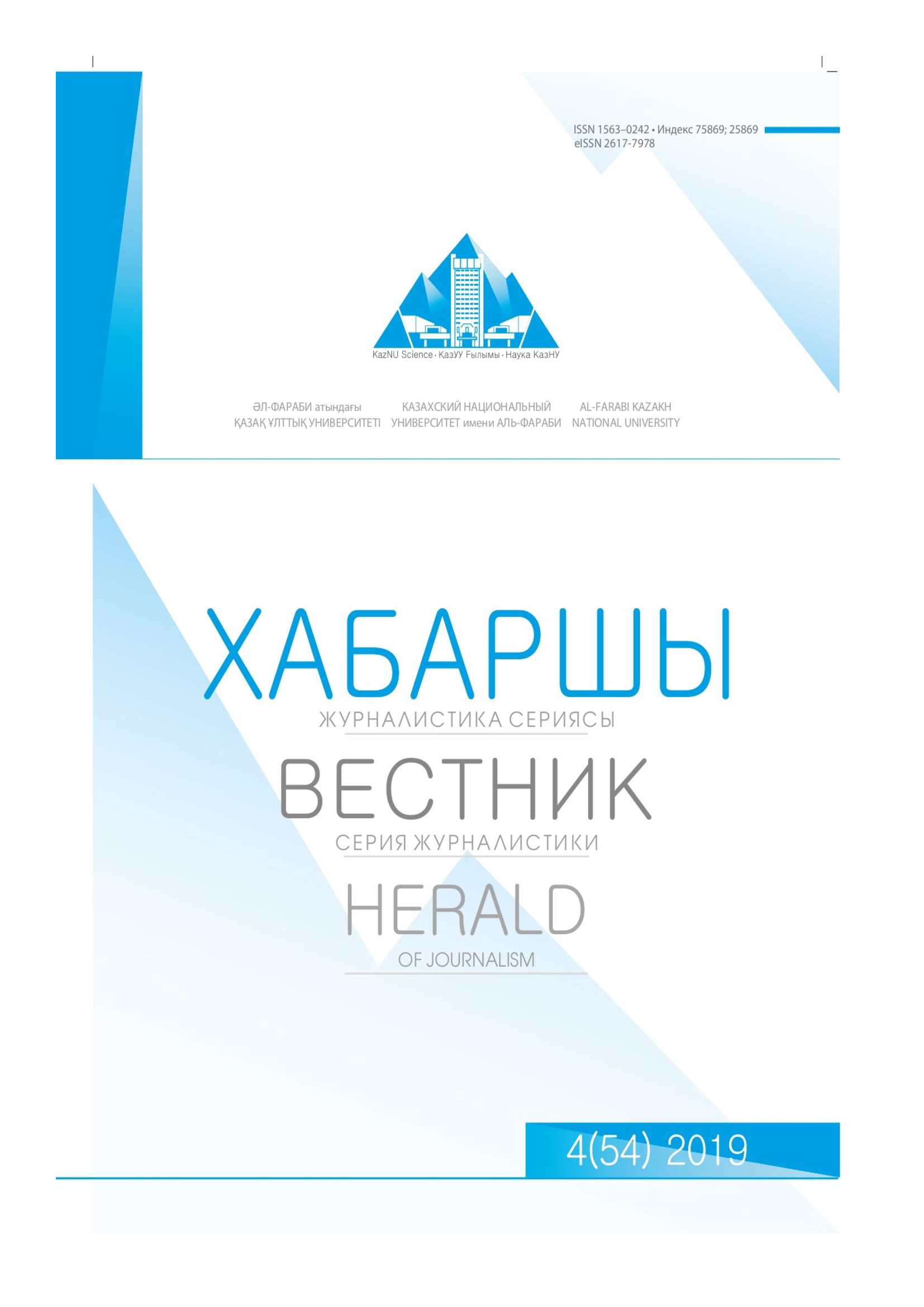Comparative analysis of kazakhstan organization’s web-programs (egov, univer, e-services) and foreign experiences
DOI:
https://doi.org/10.26577/HJ.2019.v54.i4.07Кілттік сөздер:
web-programs, e-government, foreign experience, comparative analysis, media literacyАннотация
This day simple paper and pen have already changed by new technologies and computer programs and could not be used as before. Day by day, digital programs are becoming more and more important for improvement of work in government organizations and to increase a media literacy among population. Therefore, this article is going to talk more about it.
Given article has main aim like a comparative analysis of Kazakh and foreign organizations’ web-programs and its advantages and disadvantages, effectiveness and working system that used in service centers and higher education institutions. Applying computer nets and mobile services like EGOV and Unver is important not only to enlarge a quality of service labor and time-economy, but also it has a vital role for service-users too. People have good opportunity to observe the process and prove their capacity in using modern technologies and media literacy. It plays as a role in providing new program ‘Digital Ka-zakhstan-2020` in the Republic of Kazakhstan and noticeable sample of e-government. Whilst scientific research these advantages would be investigated and made a bright definition to population.
Kazakh web-programs were explored in compare with foreign experiences and prototypes based on analysis In the process of writing article. Moreover, there are researches about different programs of organizations and its disadvantages.
Библиографиялық сілтемелер
Bingham, L. B.; Nabatchi, T.; O‟LEARY, R. (2005) The new governance: Practices and processes for stakeholder and citizen participation in the work of government: Public Administration Review, vol. 65, n. 5: 547-558.
Borins, S. (2002) On the frontiers of electronic governance: a report on the United States and Canada. International Review of Administrative Science, vol. 68, n. 2: 199- 211.
Caba, C.; Rodriguez, M. P.; Lopez, A. M. (2008) E-Government process and incentives for online public financial information:Online Information Review, vol. 32, n. 3: 379-400.
Cameron, B. D. (2005) Trends in the Usage of ISI Bibliometric Data: Uses, Abuses, and Implications: Portal: Libraries and the Academy, vol. 5, n. 1: 105-125.
Casey Farr (30 August 2018) Could a digital workplace help universities address modern challenges?
Chadwick, A.; May, C. (2003) Interaction between states and citizens in the age of the Internet: e-Government in the United States, Britain, and the European Union: Governance: An International Journal of Policy and Administration, vol. 16, n. 2: 271- 300.
Chong Y.S. (2003) Foundation of Effective E-Government –The Singapore Experience: NCS, Singapore.
E.M. Styrin(2011) E-government: strategies of formation and development.
E-government guidelines of research study of future insights(2010): Review of the book of V.Rudzkiene and A.Augustinaitis, No.1(7), pages 87-90
Essays, UK. (November 2013). Importance of Knowledge Management in Organisations , chapter 2.2 Feigenbaum, A. (1991) Total quality control. McGraw-Hill, New York.
Granier, B.,Kudo, H. (2016) How are citizens involved in smart cities? Analyzing citizen participation in Japanese “smart com-munities”. Information Polity, 22(1), pages 61–76.
Gronlund A., Horan T. (2005) Introducing e-gov: History, definitions and issues, Communications of the Association for Infor-mation Systems, vol.15, article 39
Gronlund, A. (2004) State of the art in e-Gov research –a survey”, In Trammüller, R. (ed.), Electronic Government: Third Inter-national Conference, EGOV 2004. August 30th – September 3rd
Hartley, J.; Kostoff, D. N. (2003) How useful are “key words” in scientific journals? Journal of Information Science, vol. 29, n. 5: 433-438.













